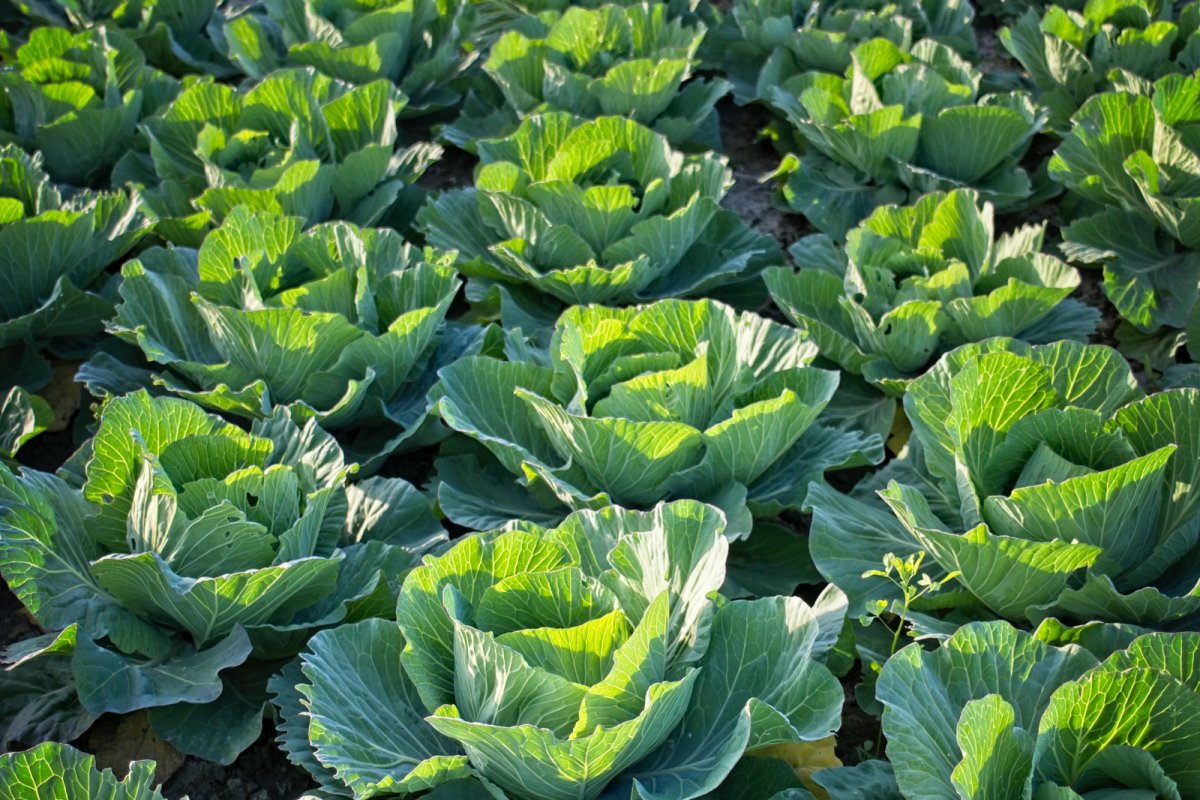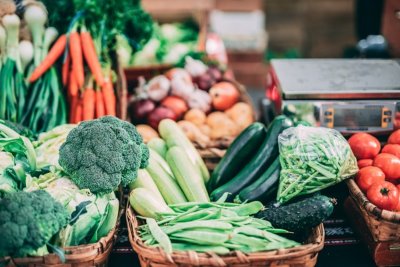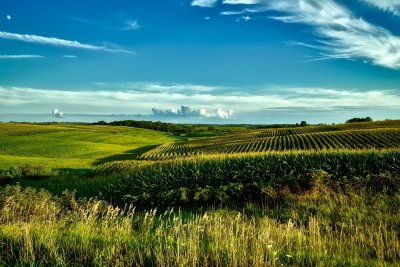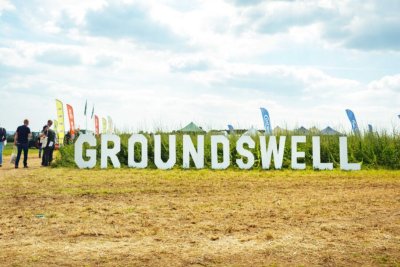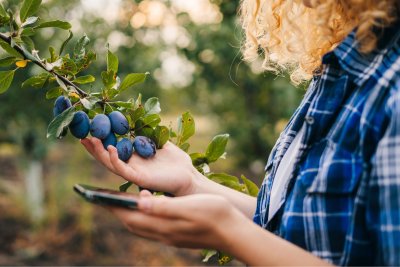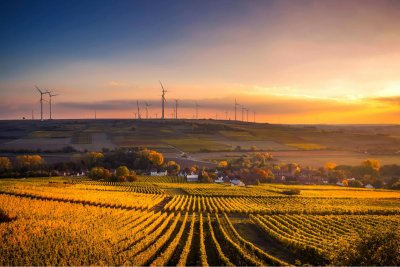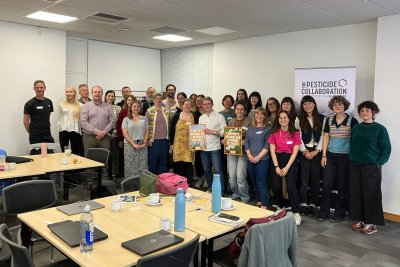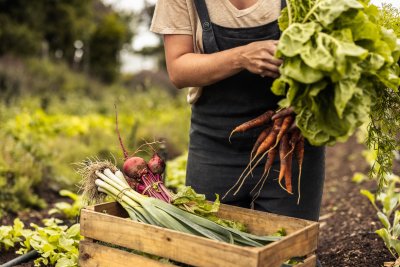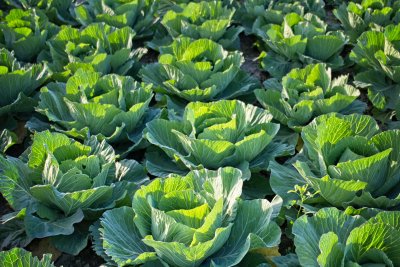 A field of cabbages. Credit: Mark Veldman from Pexels
A field of cabbages. Credit: Mark Veldman from Pexels
The report identifies climate change and biodiversity loss as key threats to food security in the UK. It argues that, to achieve food security, our food and farming system must become more resilient to predicted changes to our climate and ecosystems. Recognising that food is one of the most significant causes of climate change and biodiversity loss, the report stresses the need to reduce damage to the environment from our food system.
Recommendations for the Government include:
- Land Use Framework: Publish the promised framework before the end of 2023, fully integrating food security as a central principle. Set out how to improve productivity without negative environmental impacts and meet net zero and biodiversity targets. During the inquiry, experts recommended that less land should be used for rearing livestock, rather to ‘eat the food crops directly’.
- Provide support for a farming transition: Noting the recommendations of the Climate Change Committee to reduce meat and dairy consumption, financial and practical support is recommended for farmers to transition to more climate and nature friendly practices, ensuring environmentally sustainable food is commercially viable and culturally considerate.
- Planning: Publish guidance, under the National Planning Policy Framework, to encourage planning authorities to manage applications for land use changes which affect food security on an expedited basis.
- Public procurement: Set a target for half of public sector food to be produced locally or to higher environmental standards
- Dietary change: Publish national guidance on sustainable diets within the next 12 months, and a science-based school curriculum about the environmental impacts of food production.
- Environmental Land Management schemes: Food security should be designated as a public good, with food security and environmental goals more explicitly set out in the scheme’s design.
- Water pollution: Reduce pollution from agriculture by establishing catchment area nutrient flows, establishing a presumption against granting planning permission for new intensive livestock units where the proposed development would exceed the catchment’s nutrient budget. Slurry storage should also be improved, and the risks to human health and the environment of sewage evaluated.
- Trade: Ensure that the UK’s trade deals include high environmental standards for imported foods.
- Establish a cross-government, cross-sector food security body to make policy recommendations on long-term food resilience and environmental issues, and publish an annual food security report
- Food waste: Publish targets and timescales for reducing the wastage of food itself, and of resources that go into producing food such as fertiliser and water. They should also consider compulsory food waste reporting for all businesses.
- Reporting metrics: List all the areas in which it intends to establish metrics to define the sustainability of food, which should include soil health, carbon sequestration, biodiversity net gain, and carbon credits, and a timeline for putting the metrics in place. Then, it should consult on mandatory carbon and biodiversity food reporting, as it is already doing for health metrics.
- Soil Health: The Government must publish much more detailed advice for farmers on soil health, including science-based benchmarks that they can use to measure the health of their soils accurately and affordably.
- Seafood: explore how to encourage consumers to eat a wider variety of more sustainable species.
- Improving diversity: Encouraging more crop and farming method diversity, reducing the concentration of the food system in the hands of few retailers, and on few crops (wheat, rice, maize and soybeans).
- Urban horticulture: Improve the UK’s self-sufficiency in fruit and vegetables by improving the availability of green and grey space for allotment, community food production, smallholdings and peri-urban farms, particularly in deprived communities
Full recommendations available here
The report set out evidence from the committee inquiry of the threat that climate change poses to food security. Extreme weather last year affected the yield, the growth, and the quality of numerous crops and livestock, with drought desiccating soils and leading to stunted fruits and vegetables. Future climate change is predicted to lead to 60% more droughts, more heat, increased flooding, more extreme weather and reduce the availability of animal feed. Biodiversity decline will affect pollinator and other vital insect numbers. Rising ocean temperatures are expected to restrict the size and movement of fish and may cause populations to crash.
The report also emphasised the urgent need to reduce the climate impact of the food system. The global statistics show that food production is the second largest producer of carbon emissions and the biggest destructor of biodiversity globally, with the livestock industry the biggest source of anthropogenic methane on earth.
The report also highlighted that certain UK foods are at greater risk from global events and supply chain disruption. Agriculture that is highly dependent on imports, especially feed and fossil fuels (such as intensive livestock production) is particularly vulnerable to energy price rises.
The report discusses the impact of livestock, saying efficiency measures will not be enough to adapt to, or mitigate the impacts of the food system on the environment. They argue that this is due to the amount of land taken up by rearing livestock. When animal feed is taken into account, then the proportion of UK agricultural land used for feeding and rearing animals is 85%, though it “produces a very small proportion of our food”. Additionally, livestock are a major source of methane emissions, crops that are grown to feed livestock could be fed to humans, and feed imports here have “devastating effects” in other parts of the world.
On dietary change, evidence pointed away from ecolabels providing the solution to changing eating habits, but that businesses measuring and reporting on emissions and food waste had a positive impact.
In response, sustainable farming co-ordinator at Sustain, Will White said:
"We welcome the committee's call to improve the food and farming system's resilience to the effects of climate change and biodiversity loss. In particular, it's great to see the call for free, high quality, tailored support and advice for small farmers who are looking to transition to more nature friendly farming while staying commercially viable. However, food production should be profitable without the need to be included in environmental land management (ELM) schemes. Achieving this requires a fairer food supply chain, robust regulations, and more farmer focussed routes to market."
Ruth Westcott, climate and nature emergency coordinator at Sustain said
"To ensure food security, we need to transition urgently to grow food with a smaller land and emissions footprint. This report makes that abundantly clear. We welcome these recommendations, especially on public sector procurement. The report also gives a welcome evaluation of why intensive livestock farming is risky for food security – it’s reliant on imports of feed and energy, takes up vast amounts of space that could be used to feed humans directly, and is polluting. It’s disappointing that the committee stopped short of recommending dietary change to ‘less and better’ meat, after industry representatives argued against it. As this report points out, farmers are facing such great risks from climate change, they need options that will be more resilient and sustainable.”
You can read the report in full here
You can read Sustain's submission to the Committee here
Sustainable Farming Campaign: Sustain encourages integration of sustainable food and farming into local, regional and national government policies.
Sustain
The Green House
244-254 Cambridge Heath Road
London E2 9DA
020 3559 6777
sustain@sustainweb.org
Sustain advocates food and agriculture policies and practices that enhance the health and welfare of people and animals, improve the working and living environment, promote equity and enrich society and culture.
© Sustain 2024
Registered charity (no. 1018643)
Data privacy & cookies
